Do Edibles Make You Age Faster? A Comprehensive Look at the Long-Term Effects of Cannabis
Marijuana consumption has evolved significantly over the decades, shifting from traditional smoking methods to modern alternatives such as edibles. Historically, marijuana users relied on pipes, bongs, and rolling papers to achieve their desired effects. These methods, while effective, were often accompanied by concerns about respiratory health and the social stigma associated with smoking. In recent years, however, a notable shift has occurred with the rise of cannabis edibles—food products infused with marijuana that offer a different way to experience its effects. This shift is driven by both changing perceptions of cannabis and a desire for more discreet and varied consumption methods. A key question emerging from this trend is whether do edibles make you age faster compared to traditional consumption methods.
The transition to edibles marks a significant change in how people engage with cannabis. Edibles, including products like gummies, cookies, and chocolates, have become increasingly popular due to their appealing taste and the perception that they are a healthier alternative to smoking. They offer a longer-lasting high compared to smoking, which can appeal to users seeking extended effects without the immediate onset and potential discomfort associated with inhalation.
The purpose of this article is to explore whether cannabis edibles may accelerate the aging process. While edibles present a modern twist on cannabis consumption, they still contain THC, the psychoactive component of marijuana. We will examine current research and theories to determine if these products could have long-term effects on aging. By delving into the potential impact of edibles on cellular aging, cognitive function, and overall health, this article aims to provide a comprehensive overview of the risks and considerations associated with this increasingly popular method of consuming cannabis.
Understanding Edibles
Definition and Types of Edibles
Edibles are food products that have been infused with marijuana, specifically with tetrahydrocannabinol (THC) and other cannabinoids. Unlike traditional methods of consuming cannabis, such as smoking or vaping, edibles offer an alternative that integrates marijuana into various types of food and beverages. This method of consumption has gained popularity for its discreet nature and the prolonged duration of its effects.
There is a wide range of edible products available, catering to diverse preferences and tastes. Some of the most common types include:
- Gummies: These are perhaps the most popular and widely recognized cannabis edibles. They come in various flavors and shapes, making them appealing to both new and experienced users.
- Candies: Hard candies, lollipops, and other sweet treats are infused with marijuana extracts. They offer a familiar candy experience with the added effects of THC.
- Cookies and Brownies: Baked goods are a classic form of edibles, often providing a more substantial dose of THC and a satisfying treat.
- Chocolates: Infused chocolates combine the rich taste of chocolate with the psychoactive effects of cannabis, offering a luxurious way to consume marijuana.
- Beverages: Cannabis-infused drinks, such as sodas, teas, and even coffee, have become increasingly popular. These beverages provide a different method of ingestion and can be a refreshing alternative to solid edibles.
Popularity and Consumption Trends
The popularity of cannabis edibles has surged in recent years, reflecting a broader trend towards alternative methods of marijuana consumption. This rise is particularly notable in regions where marijuana has been legalized for recreational use. For example, in Colorado, which was one of the first states to legalize recreational marijuana, edibles quickly became a significant portion of the market. In the first year following the legalization of r
ecreational cannabis, edibles accounted for nearly half of all marijuana sales. This statistic underscores the widespread appeal and growing acceptance of edibles as a preferred method of consumption.
Several factors contribute to the increasing preference for edibles over traditional smoking methods. Firstly, edibles offer a more discreet way to consume cannabis. Unlike smoking, which can be accompanied by strong odors and visible signs of use, edibles can be consumed in public or private settings without drawing attention. This discretion is particularly appealing to those who wish to avoid the social stigma associated with smoking marijuana.
Additionally, edibles provide a longer-lasting and often more intense high compared to smoking. When cannabis is consumed through edibles, THC is metabolized differently. The process involves digestion and absorption in the liver, which converts THC into a more potent form known as 11-hydroxy-THC. This results in a delayed onset of effects, usually taking between 30 minutes to 2 hours, but the high can last for 6 to 8 hours or more. This prolonged duration is attractive to users who prefer a longer-lasting effect without the need for frequent re-dosing.
Furthermore, the variety of edible options available allows consumers to choose products that align with their personal preferences, whether they seek sweet treats, savory snacks, or beverages. This range of choices contributes to the growing trend of edibles, as users can find products that suit their taste and lifestyle.
Overall, the rise of edibles represents a significant shift in cannabis consumption trends, driven by their discreet nature, prolonged effects, and the wide variety of product options. As the market continues to expand, it is important to understand the potential effects and risks associated with these modern cannabis products.
Why People Prefer Edibles
Social and Perceptual Factors
The preference for cannabis edibles over traditional smoking methods is influenced by several social and perceptual factors. One of the primary reasons people gravitate towards edibles is the perception of them as a less stigmatized method of consumption. Smoking marijuana has long been associated with a variety of negative connotations, including concerns about health risks and social judgment. In contrast, edibles are often viewed as more discreet and socially acceptable. This perception is particularly significant for those who wish to avoid the visible and olfactory signs of smoking, which can draw unwanted attention and stigma.
The appeal of edibles is also strong among younger generations. For many millennials and Gen Z individuals, edibles are a familiar and convenient way to consume cannabis. The trend aligns with broader cultural shifts towards innovative and varied food experiences, and the idea of consuming marijuana in the form of candy or baked goods feels less like traditional drug use and more like an indulgent treat. This generational shift has been further amplified by the growing availability and marketing of edibles, which often highlight their fun and recreational aspects.
Effects and Duration
Edibles offer a unique experience compared to smoking marijuana, particularly in terms of the duration and intensity of the effects. When consumed, edibles undergo a complex metabolic process. THC is broken down in the liver, where it is converted into a more potent form known as 11-hydroxy-THC. This process not only results in a delayed onset of effects—typically taking between 30 minutes to 2 hours to fully manifest—but also leads to a longer-lasting high. Users often report that the effects of edibles can persist for 6 to 8 hours or more, in contrast to the shorter, more intense high from smoking, which typically lasts less than half that time.
This extended duration can be appealing to those seeking a prolonged experience without the need for frequent re-dosing. The gradual onset and extended high can make edibles an attractive option for users who prefer a more sustained effect, particularly for activities like social gatherings or prolonged relaxation.
Risks of Overconsumption
Despite their advantages, edibles come with their own set of risks, particularly concerning dosage estimation and overconsumption. One of the main challenges with edibles is the difficulty in accurately gauging how much THC one has ingested. Unlike smoking, where the effects are felt almost immediately, edibles can take a while to kick in. This delay can lead some users to consume more than intended, under the assumption that the initial dose was ineffective. This miscalculation can result in excessive THC intake, which can trigger adverse effects.
The potential negative effects of overconsumption include heightened anxiety, paranoia, and impaired motor skills. Excessive THC intake can exacerbate feelings of unease and lead to paranoia, which can be distressing and unpleasant. Additionally, the impairing effects on motor skills and cognitive functions can impact a person’s ability to perform everyday tasks and make sound decisions. These risks highlight the importance of cautious consumption and accurate dosage information to avoid unintended and uncomfortable experiences.
In summary, the preference for edibles is driven by their social acceptability, extended effects, and the novelty of consumption methods. However, users must remain mindful of the risks associated with dosage miscalculations and overconsumption to ensure a positive and controlled experience.
The Impact of Edibles on Aging
THC and Cellular Aging
The impact of cannabis edibles on aging is a complex issue, primarily due to the role of tetrahydrocannabinol (THC), the psychoactive compound in marijuana. THC interacts with the endocannabinoid system in the body, which plays a crucial role in maintaining homeostasis and regulating various physiological processes. Research suggests that THC can affect cellular aging through its influence on cellular stress responses and oxidative stress.
Cellular aging is characterized by a gradual decline in cellular function and an increase in cellular damage over time. THC may accelerate this process by inducing oxidative stress, which leads to the accumulation of free radicals that damage cellular structures. Several studies have indicated that THC can impair the function of mitochondria, the energy-producing organelles within cells, thereby contributing to premature cellular aging. For instance, research involving animal models has shown that chronic THC exposure can result in increased markers of oxidative stress and cellular damage, potentially speeding up the aging process.
Cognitive Effects and Aging
The cognitive effects of edibles, particularly over long-term use, are a significant concern when discussing aging. THC has been shown to affect memory, decision-making, and overall cognitive function. Regular use of edibles can lead to impairments in short-term memory and executive function, which are critical for day-to-day activities and decision-making processes.
As individuals age, cognitive decline is a common phenomenon, and the impact of THC on this process is still being explored. Studies have suggested that long-term cannabis use can exacerbate cognitive decline, particularly in older adults. The impairments in memory and cognitive function associated with THC use might accelerate the perception of aging and contribute to a more pronounced cognitive decline over time. This correlation underscores the potential risks of consuming edibles, especially for older adults who may already be experiencing age-related cognitive changes.
Mental Health Disorders
Cannabis edibles can also influence mental health, which in turn affects overall well-being and aging. Increased THC consumption has been linked to a higher risk of developing mental health disorders such as depression and anxiety. These conditions can compound the effects of aging, contributing to a decline in quality of life and overall mental health.
The relationship between THC and mental health is complex; while some individuals use cannabis to manage symptoms of anxiety or depression, excessive use can have the opposite effect. The risk of developing mental health disorders increases with prolonged and high-dosage cannabis use, and this risk is particularly significant for older adults. Chronic THC use may exacerbate feelings of depression and anxiety, further influencing an individual’s overall aging process and their quality of life.
Current Research and Gaps
Current research on the effects of cannabis edibles on aging is still in its early stages. While some studies provide valuable insights into the potential mechanisms through which THC might accelerate aging, there is a need for more comprehensive research to fully understand these effects. Existing studies often involve animal models or short-term human trials, which may not accurately reflect long-term consequences.
To better grasp the impact of edibles on aging, future research should focus on longitudinal studies that track long-term cannabis use and its effects on aging biomarkers, cognitive function, and mental health. These studies would help clarify the extent to which edibles can influence the aging process and provide more definitive answers about the potential risks associated with their consumption.
In summary, while preliminary research indicates that THC in edibles may accelerate cellular aging, impair cognitive function, and increase the risk of mental health disorders, more comprehensive studies are needed to fully understand these impacts. As cannabis edibles become more popular, it is crucial to continue investigating their long-term effects on aging and overall health.
Treatment and Support for Edible Addiction
Insurance and Coverage for Addiction Treatment
When dealing with addiction to cannabis edibles, one of the critical steps is understanding the insurance options available for substance use disorder treatment. Many insurance plans offer coverage for addiction treatment services, recognizing the significant impact that substance abuse can have on an individual’s health and well-being. Coverage typically includes various levels of care, from outpatient programs to more intensive residential treatment options.
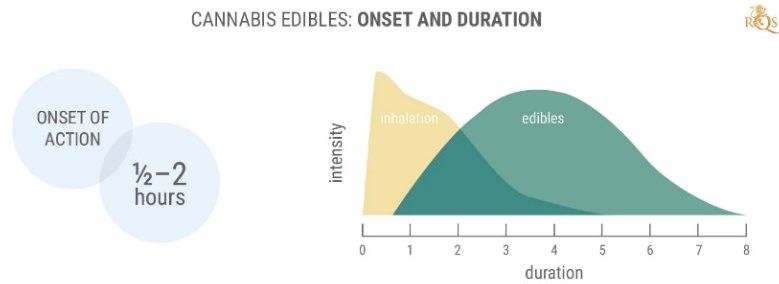
To determine what is covered by your insurance plan, it is essential to verify your benefits and understand the specifics of your policy. This involves contacting your insurance provider to discuss your coverage options and asking about the types of treatment services that are included. Many insurance companies provide a range of services, including detoxification, rehabilitation, therapy, and aftercare support. It’s also important to check if your plan covers specialized treatment for cannabis edibles addiction, as some plans may have different levels of coverage for various substances.
Steps to verify your insurance coverage include contacting your insurance company directly, reviewing your policy documents, and potentially working with a treatment center that can assist in verifying benefits and navigating the claims process. Ensuring that you understand your coverage can help you make informed decisions about the type of treatment that will best meet your needs.
Treatment Approaches
Outpatient rehab programs are a common and effective approach for treating addiction to cannabis edibles. These programs offer flexibility, allowing individuals to receive treatment while continuing with their daily responsibilities such as work, school, or family obligations. Outpatient programs typically involve regular therapy sessions and may include group counseling, individual therapy, and educational components.
The effectiveness of outpatient rehab programs lies in their ability to provide a structured treatment environment without requiring full-time residential stay. They help individuals address their substance abuse issues while maintaining their daily routines. These programs are particularly beneficial for those who do not require intensive inpatient care but still need support and guidance in their recovery journey.
Therapeutic interventions play a crucial role in addressing both substance abuse and any co-occurring mental health disorders. Many individuals struggling with addiction also face challenges such as depression, anxiety, or trauma. Integrated treatment approaches that address both addiction and mental health issues are essential for successful recovery and long-term sobriety.
Therapies and Support Systems
Various types of therapies are available to support individuals in their recovery from edible addiction. Individual therapy provides a one-on-one setting where patients can explore the underlying causes of their addiction, develop coping strategies, and work towards personal goals. This form of therapy helps individuals gain insight into their behaviors and establish healthier patterns.
Group therapy is another important component of addiction treatment. It offers a supportive environment where individuals can share their experiences, learn from others, and build a sense of community. Group therapy sessions often focus on skill-building, relapse prevention, and addressing the social aspects of addiction.
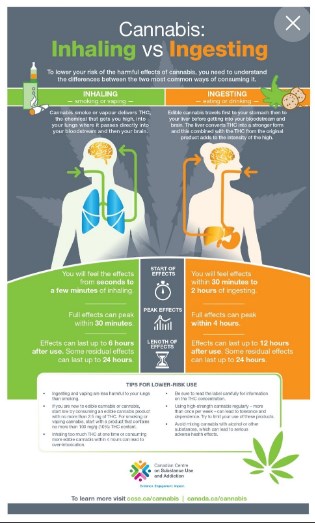
Both individual and group therapies play significant roles in understanding addiction and preventing relapse. Through these therapeutic interventions, individuals can gain a deeper understanding of their substance abuse patterns, develop effective coping mechanisms, and build a strong support network. Therapy also helps address the psychological aspects of addiction, providing tools and strategies to manage cravings and avoid triggers.
In summary, effective treatment for addiction to cannabis edibles involves a combination of insurance coverage, flexible treatment approaches, and supportive therapies. By utilizing outpatient rehab programs, verifying insurance benefits, and engaging in various therapeutic interventions, individuals can receive comprehensive care to overcome their addiction and improve their overall well-being.
In examining the potential aging effects of cannabis edibles, it is evident that there are several factors to consider. Research suggests that THC, the psychoactive component in edibles, may contribute to accelerated cellular aging through oxidative stress and damage. This can lead to noticeable changes in the body and brain over time. Additionally, the cognitive effects associated with long-term use, such as impairments in memory and decision-making, may exacerbate the perception of aging and influence overall mental health. The risk of developing mental health disorders like depression and anxiety further complicates the long-term impact of edibles on aging.
Understanding these potential effects is crucial for anyone considering or currently using cannabis edibles. The importance of evaluating the long-term health impacts cannot be overstated, as the consumption of edibles may have lasting consequences on both physical and mental well-being.
For those struggling with addiction to cannabis edibles, seeking help is a vital step towards recovery. Addiction to edibles, like any substance use disorder, can significantly impact one’s quality of life, relationships, and overall health. If you or someone you know is dealing with an addiction to edibles, it is important to reach out for support.
There are numerous resources available for addiction treatment, including outpatient rehab programs, therapy options, and support groups. If you need assistance, consider contacting a local treatment center or calling a dedicated helpline. For instance, you can reach out to Buckhead Behavioral Health at 470-460-6962 to explore treatment options and verify insurance coverage for addiction services. Your well-being is important, and professional help can provide the guidance and support needed for a successful recovery.
Balancing enjoyment and health risks is essential when it comes to cannabis consumption. While edibles may offer a convenient and appealing method for consuming marijuana, it is important to be aware of the potential risks associated with their use, including whether do edibles make you age faster. Informed decision-making involves understanding both the immediate pleasures and the long-term consequences of consumption.
Ultimately, making educated choices about cannabis use can help mitigate potential health risks and ensure that you are making decisions that align with your overall well-being. By staying informed and seeking help when needed, you can better manage your health and make choices that support a balanced and healthy lifestyle.
Age -Your Complete Guide to Safe & Legal Child Travel, Including Booster Seat Age Florida Requirements
Championing Transparency and National Security: The Inspiring Journey of PSVF Fellow Ana Bower and Anna Bower’s Age
Consent for Routine Medical Care A Comprehensive Guide, Including What is the Age of Consent in Virginia
Navigating the Complexities of Consent Washington Age of Consent, Sexting, and Legal Implications
Understanding Sexual Consent Laws and the Virginia Legal Age of Consent in the Commonwealth
Travis bagent’s age “The Beast” The Unstoppable Force in Arm-Wrestling’s History and His Age
A Comprehensive Look at the Model’s Career, Impact, and Nikki Howard Age
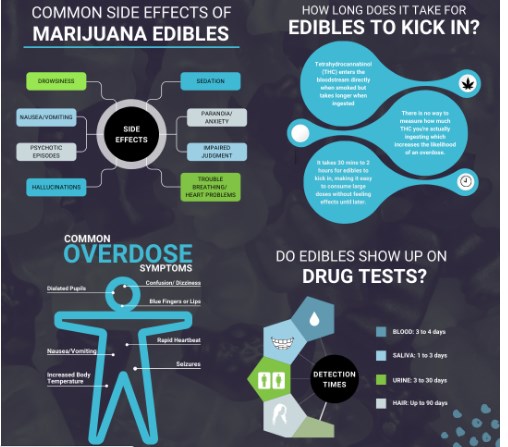
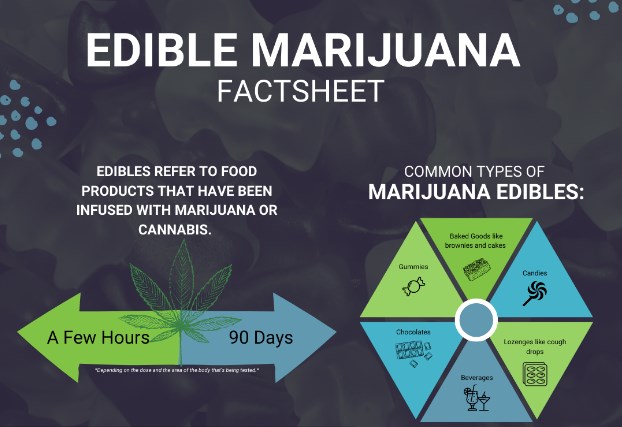
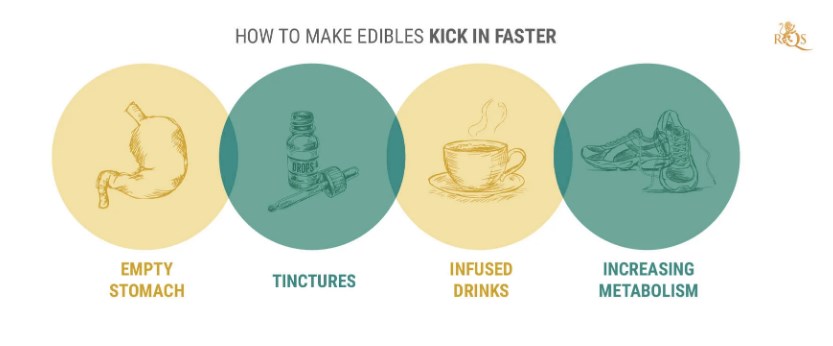
 | Sitemap | Mail
| Sitemap | Mail